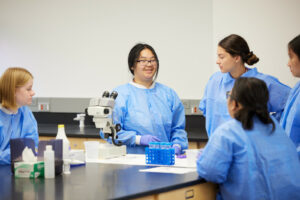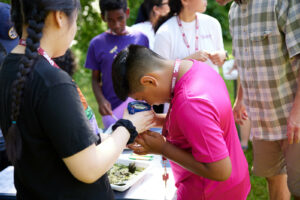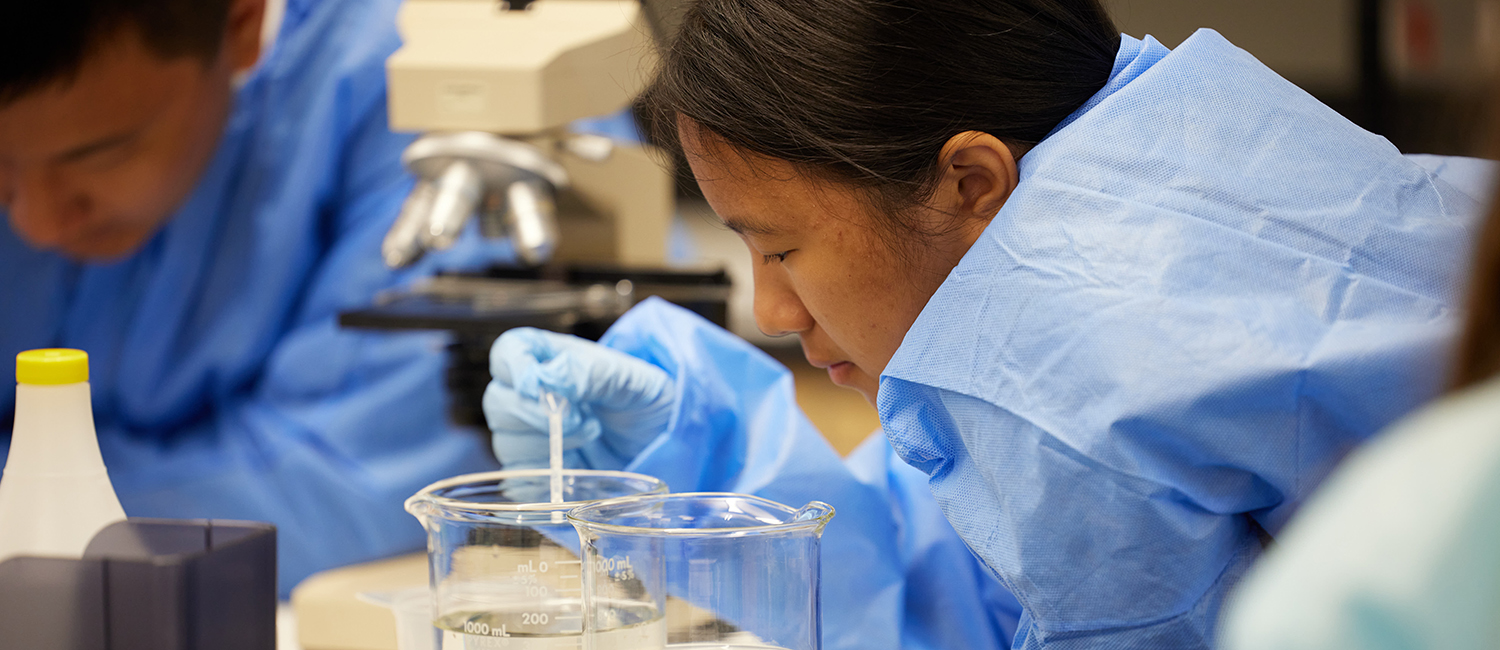Nadalee Thao, a high school junior from Milwaukee, had heard that the University of Wisconsin–La Crosse was a good science school, and she was interested in checking it out. She had the opportunity to do so as a participant in My River Adventures Camp (MRA), a pre-college summer camp at UW-La Crosse supported in part by the Freshwater Collaborative of Wisconsin.

“The counselors were awesome, and all the people there made it really fun,” Thao says. “I learned how to be a leader. I also learned a lot about biology and environmental science.”
The weeklong camp is part of the university’s efforts to recruit students for careers in STEM, specifically water-related sectors, such as biology, ecology and aquatic science, where skilled professionals are in high demand.
A primary goal of the camp is to address the lack of diversity in the water sector and to expose students from underrepresented communities to careers in STEM. Funding from the Freshwater Collaborative made it possible to provide the camp, as well as food and lodging, free of charge to 30 students. These funds greatly increased the camp’s accessibility, regardless of a student’s socioeconomic status.
“The importance of this camp is to provide a campus-based experience for students who may not have normally had an opportunity like this,” says Laura Lauderdale, Pre-College coordinator at UW-La Crosse and the camp’s director. “Participating in faculty sessions in college academic buildings makes the possibility of attending college tangible and attainable for these students.”
Faculty members Adam Driscoll, Tisha King-Heiden, and Brian Pompeii from the university’s River Studies Center led instructional sessions and visits to regional rivers and marshes in the surrounding area for fieldwork and observation. Participants were also assigned an undergraduate mentor who worked one-one-one with them as they engaged in various hands-on activities, including using GPS to navigate marshlands, flood plains and natural habitats; analyzing and identifying fish and plant species as part of DNR sampling activities; learning about water-quality sampling; and viewing specimens under a microscope.

“I learned a lot about bodies of water, fish and wildlife in the marsh and rivers,” says sixth grader Matheo Huerta Perez.
The experience also offered leadership and hands-on learning opportunities to the nine camp mentors. UW-La Crosse undergraduate Maddie Renaud is majoring in middle childhood/early adolescent education and minoring in at-risk youth and childcare, and she’s been involved in the university’s Pre-College programs since 2018. Working as the camp assistant and a mentor will be beneficial when she graduates in December.
“I have learned many valuable skills and lessons throughout my experience with the MRA camp — both about the value of our local water sources as well as the confidence to be able to facilitate, engage and build meaningful connections with Wisconsin youth,” Renaud says. “I am extremely grateful to have been a part of this collaboration and hope to see this program continue in the future, as the city, staff and community partners of UW La Crosse enlightened these kids’ lives in a multitude of ways.”
In addition to the science component, camp participants and their undergraduate mentors learned more about careers within the STEM fields and freshwater sciences. And students were encouraged to try new things.
“I stepped out of my comfort zone and did activities I usually wouldn’t do,” says Blossom Xiong, a ninth grader from Altoona, Wis. “I also learned about the different creatures in the marsh and how chemicals in the water can affect them.”
Seeing students push themselves is one of the things Lauderdale enjoys most about running the camp.
“The students we worked with were truly phenomenal,” she says. “They embodied our ‘challenge by choice’ mentality and stepped outside of their comfort zone all week.”

